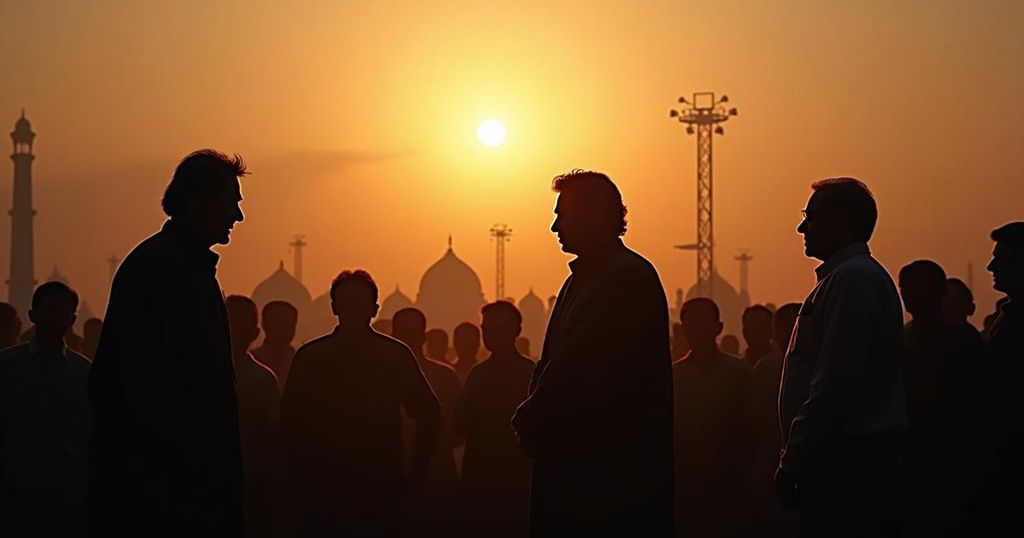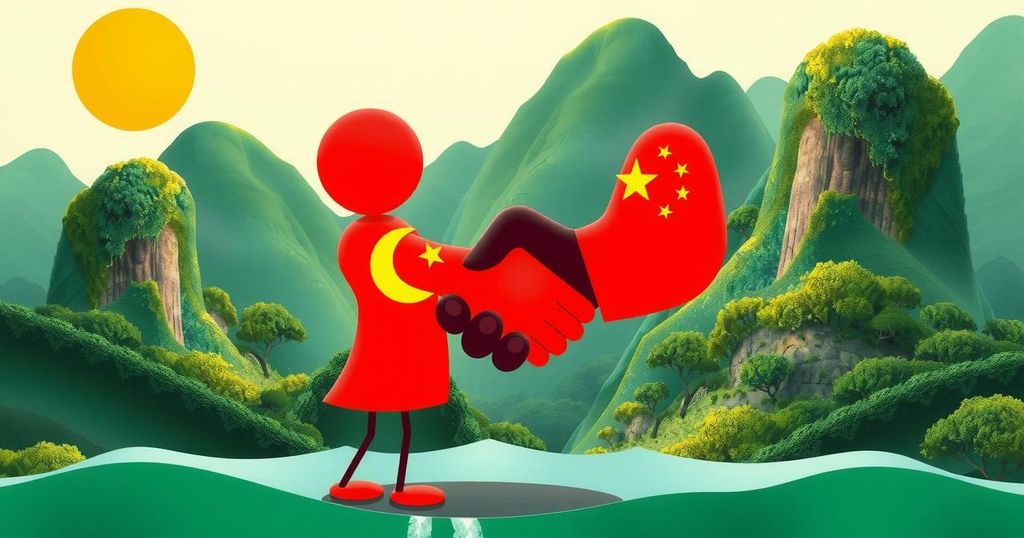PTI Leader Invites Jaishankar to Join Protests,sparking Controversy in Pakistan
A PTI leader has invited Indian External Affairs Minister S. Jaishankar to participate in ongoing protests in Pakistan, eliciting sharp criticism from the ruling coalition. The situation escalates as security measures tighten ahead of the SCO summit, and the PTI’s actions raise questions about the party’s credibility amid ongoing political turmoil and economic challenges in the country.
In a recent debate regarding the ongoing protests in Pakistan, a leader from the Pakistan Tehreek-e-Insaf (PTI) party, associated with the jailed former Prime Minister Imran Khan, extended an invitation to Indian External Affairs Minister S. Jaishankar to join the demonstrations. Muhammad Ali Saif, an information advisor to the chief minister of Khyber Pakhtunkhwa, made this statement during a press segment on Geo News, suggesting that Mr. Jaishankar should come and witness Pakistan’s democratic practices. This call for participation raised significant concerns within the ruling coalition, eliciting vehement responses from various government officials. Attaullah Tarar, a prominent member of the Pakistan Muslim League-Nawaz (PML-N), labeled the invitation as “highly irresponsible” and characterized it as an act of hostility towards Pakistan. Similarly, Sarjeel Memon of the Pakistan Peoples Party (PPP) condemned the PTI’s motives, further asserting that inviting foreign dignitaries could undermine the upcoming Shanghai Cooperation Organisation (SCO) summit scheduled for mid-October. Defence Minister Khawaja Asif stated that the PTI’s conduct questioned the party’s credibility. Following the backlash, Mr. Saif attempted to clarify his remarks, claiming his comments were misinterpreted. The PTI has been rallying against several government policies, insisting on constitutional adherence, judicial independence, and addressing inflation, alongside calling for the release of their founding leader, Mr. Khan, who has been imprisoned since August 5, 2023, facing multiple legal challenges. As protests were planned, the government deployed military personnel in Islamabad to maintain order during the PTI rally at D-Chowk, enforcing strict regulations to prevent any public gathering, including a ban on pillion riding and manipulating mobile services. Section 144 of the Code of Criminal Procedure has been activated in both Rawalpindi and Islamabad to discourage any assemblies.
The political landscape in Pakistan remains tumultuous, particularly following the arrest of Imran Khan, which has engendered widespread protests. The Pakistan Tehreek-e-Insaf party, seeking to rally public support, has expressed grievances related to the government’s economic management, perceived judicial bias, and calls for democratic integrity. The invitation to Mr. Jaishankar symbolizes PTI’s effort to draw international attention and support to their cause, which has sparked contentious reactions domestically, emphasizing the fraught nature of India’s-Pakistan relations. These developments occur against the backdrop of the Shanghai Cooperation Organisation meeting, suggesting an intersection between domestic protests and vital international diplomatic dialogues.
The invitation extended to External Affairs Minister S. Jaishankar by a leader of the PTI has ignited a significant political controversy within Pakistan. While the PTI aims to illustrate the strength of Pakistan’s democracy and gather international solidarity, the ruling coalition perceives this as a reckless move that jeopardizes national integrity and security. As protests escalate and security measures tighten in anticipation of the SCO summit, the dynamics of Pakistani politics continue to evolve, reflecting broader tensions and the challenges of governance in the region. The convergence of these issues underscores the necessity for a comprehensive understanding of Pakistan’s political environment and its implications for both domestic and international relations.
Original Source: www.ndtv.com








Post Comment